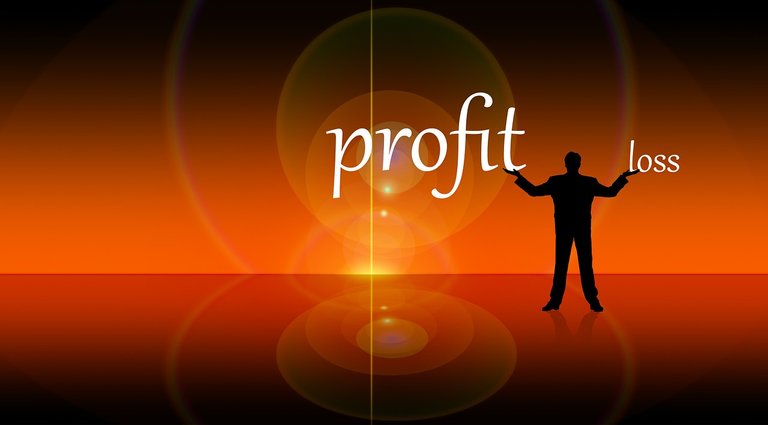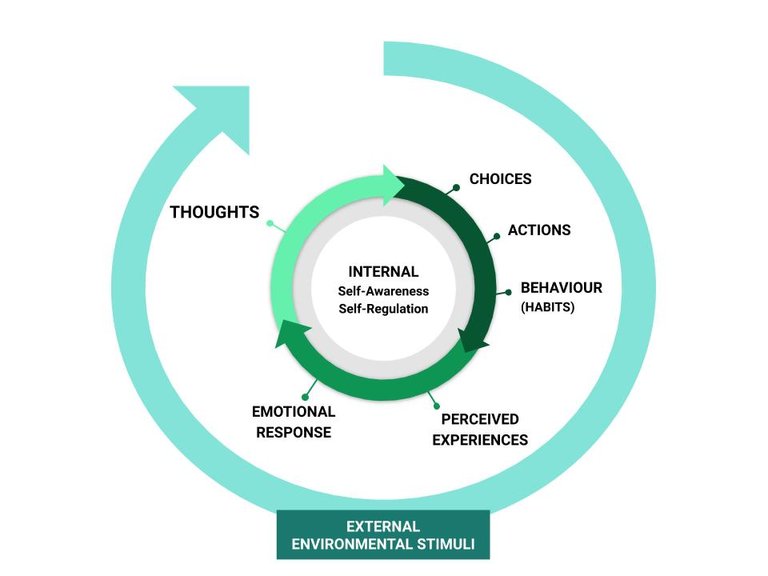
Introduction
Aside to having an excellent strategy, the effectiveness and success of a manual trading practice remains dependent on the human ability to successfully execute it.
In this post we explore the dynamics behind some of the psychological challenges to Trading.
Who we are, how we live, and what we do outside of trading sessions undoubtedly impacts our ability for optimal performance in them, and vice versa. Excellent physical and psychological wellbeing, effective cognitive-function and a supportive environment are paramount to optimal performance.
Improving all of these factors is a personal choice. Empowering ourselves with permission to make that choice should be the priority.
The balance of our P&L in trading and in life therefore is directly impacted by the environments we choose, the thoughts we think, the actions we take, the behaviours we embody, the experiences we perceive and the emotions we nurture.
Below, is a brief list of some common Trading challenges collated from group discussions within the Optimal Trading Psychology Group (OTPG) on LinkedIn, made up of independent and professional Traders. These are not exhaustive but merely a snapshot, representative of some psychological challenges many Traders are experiencing. If you have others you'd like to promote for discussion and review within the group, please join the OTP Group and/or DM the author of this article.
Underlying many of the challenges presented are the relationships and interactions between external environmental stimuli and the psychological and physiological states of the individual in their trading sessions.
All three factors impact your trading behaviour, unless interventions for conscious self-awareness and self-regulation are applied (see definitions below). This sounds obvious and simple, but not commonly understood, practiced or exercised effectively by many Traders.
Ideally, as traders our individual aims should prioritise moving from; passively-reactive to a positively-proactive state of self-awareness and cognition in all our trading endeavours, so we increase levels of self-awareness and enhance self-regulation. Beneficial for a heightened focus in a Trading practice or any performant and results driven activity.
Basic and common Psychological challenges to Trading (courtesy of OTPG members, and in no particular order):
Entering a trade
Staying in a trade
Discipline
Emotional awareness (Emotional Quotient)
Revenge Trading
Chasing a trade (FOMO)
Accepting losses
Identification of emotional triggers
Chart watching
Over Trading
Analysis paralysis
Emotional detachment from trades
Market noise (Opinions & Fake news, FUD)
Staying Present (focused, mindful, aware)
Join the OTPG here (Optimal Trading Psychology Group).
What does being self-aware and self-regulated actually mean?
Whilst we may immediately understand the terms, I challenge you to ask someone for a definition and explanation of how to measure each. You'll most likely receive a vacant, glazed and distant stare into the abyss! No shame in that, both are constructs we consciously acknowledge but don't verbalise or quantify in everyday dialogue and therefore difficult to define.
As such, both self-awareness and self-regulation as terms are subjectively obvious yet objectively obscure. So, let’s define them in line with scientifically cited research.
Self-awareness can have multiple interpretations such as:
“the ability to introspect about one’s emotions and thoughts, the ability to distinguish oneself from others, and the representation of oneself as a being.” (Basile 2007, p. 2)
Self-regulation can be defined as:
“the ability to flexibly activate, monitor, inhibit, persevere and/or adapt one's behaviour, attention, emotions and cognitive strategies in response to directions from internal cues, environmental stimuli and feed back from others, in an attempt to attain personally-relevant goals” (Moilanen 2007, p. 835)
By improving individual self-awareness and enhancing self-regulation within your trading environments, the opportunity to positively direct your personal behaviours towards desired trading outcomes is presented. This statement promotes the idea of effective execution through positive and proactive alignment of your human response with your goals, and will be relevant to your unique trading style and individual strategy.
Join the OTPG here (Optimal Trading Psychology Group).
Thoughts & emotions
As humans we are emotionally driven so being consciously self-aware of your emotional states and their impact to behavioural actions is a critical factor for effective self-regulation, successful personal development and ongoing success across all domains of life.
Many of the listed challenges above may seem light for considderation as a psychological challenge, however consider each item as the peak of an iceberg with much deeper thoughts of the conscious mind (present mind) represented by the immediately submerged ice, and the floating mind (subconscious mind) represented by the main body of the ice and the buried mind (unconscious mind) anchored to the bottom of the iceberg.
Underlying each of these psychological challenges, is most likely to be an association to one of the five human emotions listed below, as per the Atlas of Emotions, Dr. Paul Ekman. These include:
- Anger
- Fear
- Disgust
- Sadness, and/or Enjoyment
There are of course a multitude of words we use to describe further human emotions which will filter back into these five core-human-emotions.
It’s here where solid foundational work to identify thoughts with their associated emotions can act as the catalyst for immense personal progress to increase self-awareness, raising conscious-awareness of thoughts from the buried mind to the conscious mind, and helping enhance self-regulation to accelerate personal & professional development.
Scratching beneath the surface of the metaphorical iceberg to explore thoughts and emotions will help you identify your unique origins of behavioural response. lifeprint.fit utilises a unique self-mastery system to do this by helping you benchmarking and understand where you are right now.
By doing so you can clearly define your target outcomes and experiences (goals) to initiate the dynamic change required to succesffully achieve them. Furthermore, understanding that all your defined goals connect to an emotional desire (a feeling) you wish to experience, helps you liberate deeper awareness for new opportunities not previously conceived as possible.
Inititating self-awareness
You can start, first by observing your thoughts, and then the simple relationships and interactions between your external environments, your internal cognitive process (psychological), your bodily sensations (physiological) and how you're feeling (emotional response), this will help you identify and understand trends and sequences of interrelated events within you and how they are impacted from without you.
To initiate lasting and meaningful change for desired outcomes and experiences whether on a macro or micro level, you must first begin to change your thoughts to leverage them in alignment with your goals. The paradox is however, that in order to change your thoughts you must first be consciously aware of them. Fig 1. helps represent this visually, see below:
Fig 1. Cognitive-continuum

Source: © 2019 lifeprint.fit
The Cognitive-continuum highlights a flow whereby:
Thoughts lead to ➢ choices ➢ determining actions ➢ behaviours/habits ➢ our perceived experiences and ➢ emotional responses ➢ returning back to validate or challenge ➢ existing thoughts, whilst all endure influence from external environment stimuli throughout the continuum.
All of the above is relevant to achievement of your goals through your own unique Cognitive-continuum, and all of which are impacted by external, envrionmental stimuli, whether through people, groups, organisations, societal-culture, media or actual physical environments.
This approach of course assumes an individual has already begun identifying and validating authentic and meaningful goals, i.e. their own personal goals or in context of this article ones unique trading goals and the associated emotions attached to these goals.
Individuals can begin to more deeply explore, understand and apply improved self-awareness and self-regulation through a number of means, some include mindfulness and meditation, both of which complement practices related with the Cognitive-continuum.
Meditation is scientifically proven to help increase the neuroplasticity of the brain. Neuroplasticity refers to the process of synaptic pruning where redundnant neural connections are released and priority connections are strengthened, helping different regions of the brain fire & rewire for growth. The brain needs to be worked to optimise its function. Just as your muscles are exercised in different ways to increase their strength and flexibility, so too can your brain and mind be.
lifeprint.fit uses the Cognitive-continuum as a framework to help increase our clients awareness alongside a detailed methodology for capturing a unique heat-map of cognitive thought. This supports analysis and definition of cognitive process to define origin and meaning, validating how thoughts impact ones emotional responses (our emotional heat-map), ones actions / behaviours and perceived experiences.
Such work opens up new veins of exploration relevant to the dependencies and relationships ones' thoughts associate with; i.e. back to the individual beliefs (belief-frameworks), core-values (value-systems) and personal biases, which are not captured in the Fig.1 visual representation.
If you'd like to understand more on how to develop your own cognitive and emotional heat-maps to optimise performance, increase self-awareness and self-regulation, please contact us here.
In conjunction with a structured coaching programme, the above actions act as some of the foundational steps towards creating a greater understanding of self and the world around you, and will ultimately help accelerate you towards your highest goals through personal self-mastery and peak-performance.
If you have specific questions or would like to understand how to practically apply aspects of this content, please contact us here
Join the Optimal Trading Psychology Group (OTPG)
Author
Tom is an experienced Coaching Psychologist & Positive Psychology Coach, with a commercial background in Corporate sales and business development, Financial Markets and Cryptocurrency Trading. He is founder at lifeprint.fit, leading wellbeing-consultancy experts, providers of self-mastery and peak-performance programmes and one to one coaching solutions.
Tom is a keen endurance athlete and extreme sports enthusiast, due to run the Marathon Des Sables in 2020 for Walking with the Wounded. If you'd like to support this amazing charity helping military veterans, please click here.
Sign up to the lifeprint.fit newsletter here
and/or follow us on:
Twitter | Facebook | Instagram
Published by Thomas C. Wilkinson: Coaching Psychologist at lifeprint.fit. Transforming challenge into exponential growth, Self-Mastery & Peak-Performance.
Congratulations @boshfly30! You received a personal award!
You can view your badges on your Steem Board and compare to others on the Steem Ranking
Vote for @Steemitboard as a witness to get one more award and increased upvotes!
Congratulations @boshfly30! You received a personal award!
You can view your badges on your Steem Board and compare to others on the Steem Ranking
Vote for @Steemitboard as a witness to get one more award and increased upvotes!
Congratulations @boshfly30! You received a personal award!
You can view your badges on your Steem Board and compare to others on the Steem Ranking
Vote for @Steemitboard as a witness to get one more award and increased upvotes!
Well-thought and written post. I'd love to read more about the psychological games at play while trading